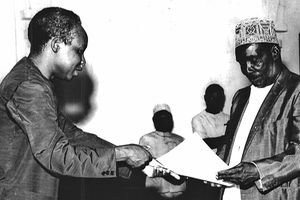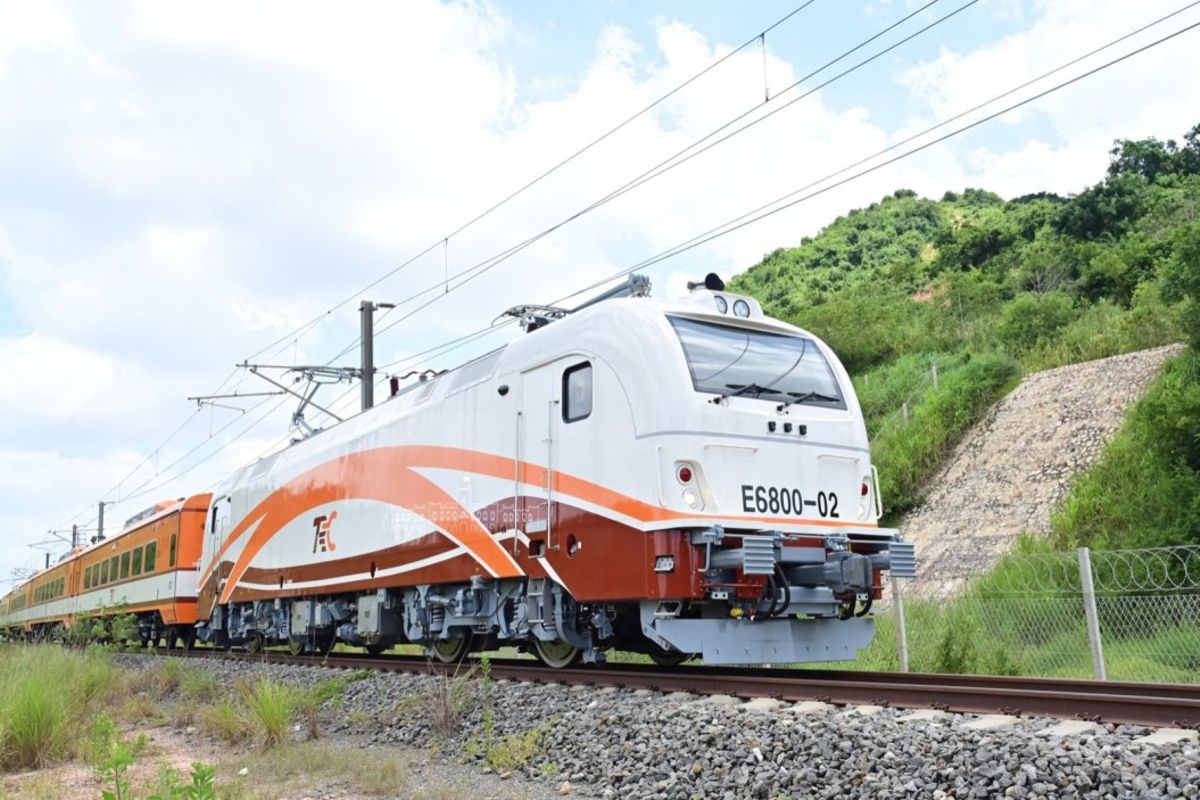Tshisekedi: DR Congo's leader pledging to cement progress

DR Congo's President Felix Tshisekedi, who was propelled to power from heading the opposition party founded by his father, is seeking re-election to cement his authority as he defends a mixed record in office.
In pugnacious rallies, the 60-year-old, sporting white shirts and baseball caps, has urged voters on December 20 to allow him to "consolidate his gains", trumpeting progress on development and security.
Beyond continuing the work he has begun, Tshisekedi's bid for a second term at the helm of the Democratic Republic of Congo is a quest for legitimacy.
He first took office in 2019 after a disputed election that numerous observers said he had lost.
He replaced ex-president Joseph Kabila after 18 years in power in the country's first bloodless government transition since independence in 1960.
But the results were fiercely contested and independent observers such as the Roman Catholic Church said that rival candidate Martin Fayulu had actually won.
Known by the nickname "Fatshi" -- an abbreviation of his name -- Tshisekedi has led the DRC through the Covid pandemic and ongoing M23 rebellion in the mineral-rich east.
Although the economy has grown, inflation is soaring and unemployment remains the norm in the impoverished nation.
Tshisekedi has regularly accused opposition figures of working for foreign interests.
And during a recent rally, he likened Rwandan President Paul Kagame -- whom he accuses of backing the M23 rebels -- to Adolf Hitler.
"Since he wanted to behave like Adolf Hitler by having expansionist aims, I promise he will end up like Adolf Hitler," Tshisekedi told a roaring crowd.
Supporters often chant "Fatshi Beton" -- which translates as "Concrete Fatshi" in French and signifies solidity.
But to his detractors, Tshisekedi is a lacklustre bon vivant unsuited to his role.
Exiting father's shadow
Tshisekedi's father, Etienne, was the leading opponent of former dictator Mobutu Sese Seko.
An ethnic Luba from Congo's Kasai region, Felix was forced to follow his father there at the age of 19, when the latter was banished from the capital.
Three years later, Mobutu allowed Felix, his mother and siblings to go into exile in Belgium.
He then began to climb the ranks of his father's UDPS party and in 2011 won a parliamentary seat in the Kasaian city of Mbuji-Mayi.
But Tshisekedi refused to take up the seat on instructions from his father, who considered then-president Kabila a dictator.
Etienne Tshisekedi died in 2017, a year before his son ran for president.
Once in power, Felix Tshisekedi began to nurture his public image and travel abroad extensively, in contrast to his reclusive predecessor.
He also broke off a coalition deal with Kabila, striking out on his own.
Night owl
The president, who is married and has children, is known to be soft-spoken and a good listener.
An official who has worked closely with Tshisekedi and requested anonymity described him as respectful.
"I was struck by his humility," the official said.
Tshisekedi also has a reputation as a late-rising reveller, who runs the country by night.
Presidential addresses made around midnight are common -- several officials have told AFP that top government meetings are often held late at night.
The DRC is one of the poorest nations in the world, riddled with corruption. Combating it was highlighted as a key goal of Tshisekedi's presidency.
But his record is patchy, and many analysts view him as prioritising his political position.
Conflict
Tshisekedi came to office promising progress on development and his government has introduced free primary schooling.
But life remains tough for most Congolese.
And despite economic growth on paper, inflation reached more than 20 percent in October compared to last year, according to the International Monetary Fund.
The east of the country is also mired in bloody conflict, with the M23 rebel offensive launched in late 2021 displacing over a million people.
Progress on consolidating DRC's fragile democracy is also stalling. Authorities have jailed opposition politicians as well as a prominent journalist.
Nevertheless, Tshisekedi has stressed that the DRC was rock bottom when he came to power.





